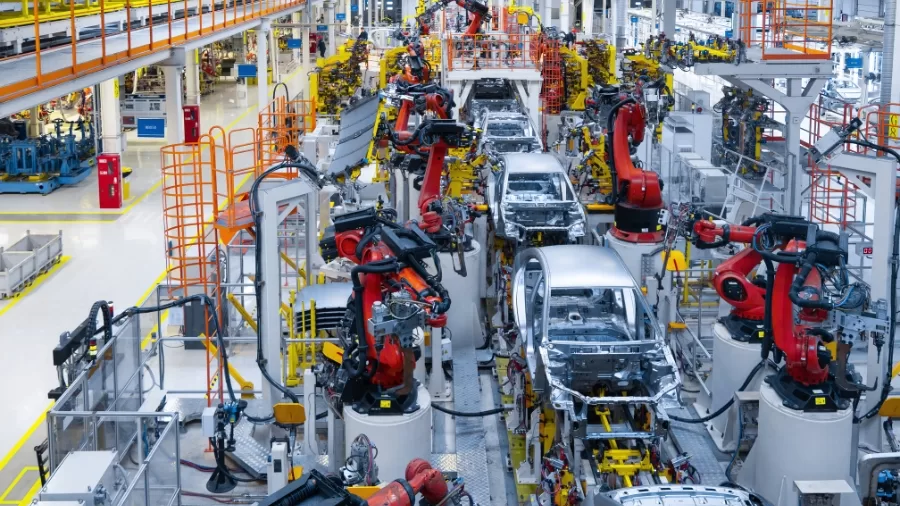Auto
Petrol Car Ban Stays, But UK Eases Path for Auto Industry Shift to EVs

- The British government is now looking to ease rules on the transition to electric cars to support the car manufacturers while keeping the 2030 ban on petrol and diesel cars going.
- The fines have been reduced, and deadlines for smaller companies have been time-stretched. Support could counterbalance the backlash from US tariffs on cars.
In recognition of the pressures facing the British automobile industry, the British government has announced a relaxation of the timeline for manufacturers to fully transition to electric vehicles (EVs). While the government will enforce the law against new petrol and diesel vehicles by 2030, companies will have more flexibility on annual targets and lower fines.
Transport Secretary Heidi Alexander said the changes aimed to maintain and create jobs and steer the UK down the road towards a greener future. The announcement is envisaged in a harder time for the industry, now troubled with the imposition of new US tariffs in addition to the demanding transition being forced upon it by an already challenging switch to EVs.
Helping Car Makers Adapt Without Punishment
Under the present regulations, car manufacturers must ensure that 28% of all new cars sold in the UK this year have to be electric. This number goes up every year, as the petrol and diesel ban is meant to be enforced fully by 2030. Companies that do not hit the targets are subject to a fine of £15,000 for each non-compliant vehicle sold.
Flexibility is being allowed now by the government. Manufacturers can carry over an EV sale from one year to help offset the shortfall in another. In addition to this, the penalty for failing to reach the targets shall be £12,000 instead of the previous £15,000, according to the assertion of Prime Minister Sir Keir Starmer.
Writing for The Times, he stated, “We’re putting £2.3 billion towards tax breaks for people buying electric vehicles and improving charging infrastructure.” This is a drive to make it easier for companies and, indeed, drivers to make an EV jump on time.
Creating an Additional Niche Market for The Smaller and Luxury Brands
Another change announced by the government includes the smaller UK car manufacturers. Firms such as Aston Martin and McLaren are allowed to manufacture petrol cars well beyond 2030. Furthermore, some hybrids will have their production extended to the year 2035. One foremost aim should be to smooth the path to cleaner transport without endangering UK jobs or stopping the flow of car production in this country.
Tariffs Add International Pressure
The United States, the UK’s second biggest car market, declared a 25% tariff against imports last week. So Jaguar Land Rover from Coventry paused sending cars to the US to examine the effects of the law on business activities. Back in February 2025, car exports from the United Kingdom to the United States rose 34.6% to escape tariffs. By this time in April, the concern for the impact of the tariff on the U.S. market became a major worry for the car industry in the United Kingdom.
Political Responses: Mixed
The government’s approach received an array of signals. While Sir Keir Starmer stated that the measures will “boost growth that puts money in working people’s pockets”, some analysts might disagree.
Ramping up criticism, Shadow Business Secretary Andrew Griffith criticised the policy shift as “half-baked”. Meanwhile, Conservative leader Kemi Badenoch confirmed her scepticism earlier on while reiterating “net zero by 2050 is impossible”. Liberal Democrat transport spokesperson urged for “better incentives” for consumers to buy electric vehicles and said the changes “won’t be enough to protect the sector from the impact of Trump’s damaging tariffs”.
Even common ground between most politicians holds that more must be done in establishing charging infrastructure and bringing the EV prices down – it seems out of their reach compared to their traditional price, so many consumers forsake consideration for an EV upgrade.
Balancing Ambition with Real-World Challenges
The UK government continues to strongly support the transition to electric vehicles but is also taking a practical approach by considering the needs of the industry and the drivers. By easing some regulations and enabling assistance, the aim has been to help the automotive industry in managing the transition and positioning it for long-term success. However, this strong position is now under added pressure due to new US tariffs. There is already help in the pipeline, but that support will be reviewed on account of the challenges thrown in by the US tariffs. The zero-emission journey continues – much smoother, thanks to recent adjustments.


















































